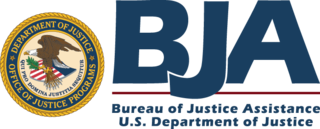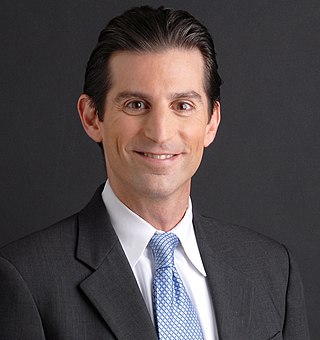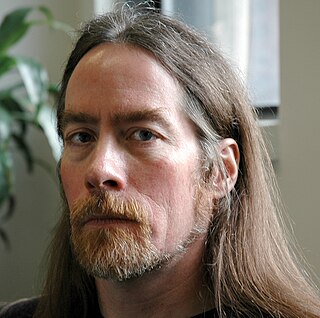Related Research Articles

The Violent Crime Control and Law Enforcement Act of 1994, commonly referred to as the 1994 Crime Bill, or the Clinton Crime Bill, is an Act of Congress dealing with crime and law enforcement; it became law in 1994. It is the largest crime bill in the history of the United States and consisted of 356 pages that provided for 100,000 new police officers, $9.7 billion in funding for prisons were designed with significant input from experienced police officers. Sponsored by U.S. Representative Jack Brooks of Texas, the bill was passed by Congress and signed into law by President Bill Clinton. Then-Senator Joe Biden of Delaware drafted the Senate version of the legislation in cooperation with the National Association of Police Organizations, also incorporating the Violence Against Women Act (VAWA) with Senator Orrin Hatch.

The Bureau of Alcohol, Tobacco, Firearms and Explosives (BATFE), commonly referred to as the ATF, is a domestic law enforcement agency within the United States Department of Justice. Its responsibilities include the investigation and prevention of federal offenses involving the unlawful use, manufacture, and possession of firearms and explosives; acts of arson and bombings; and illegal trafficking and tax evasion of alcohol and tobacco products. The ATF also regulates via licensing the sale, possession, and transportation of firearms, ammunition, and explosives in interstate commerce. Many of the ATF's activities are carried out in conjunction with task forces made up of state and local law enforcement officers, such as Project Safe Neighborhoods. The ATF operates a unique fire research laboratory in Beltsville, Maryland, where full-scale mock-ups of criminal arson can be reconstructed. The ATF had 5,285 employees and an annual budget of almost $1.5 billion in 2021. The ATF has received criticism over the Ruby Ridge controversy, the Waco siege controversy and others.
Project Exile is a federal program started in Richmond, Virginia, in 1997. Project Exile shifted the prosecution of illegal technical gun possession offenses to federal court, where they carried a mandatory minimum sentence of five years in federal prison under the federal Gun Control Act of 1968, rather than in state court. Note that federal law provides for a penalty of ten years in federal prison for being a "prohibited person", i.e., a convicted felon in possession of a firearm, as well as for falsifying information in order to obtain one, or furnishing a gun to a convicted felon.

The Bureau of Justice Assistance (BJA) is a component of the Office of Justice Programs, within the United States Department of Justice. BJA provides leadership and assistance to local criminal justice programs that improve and reinforce the nation's criminal justice system.
Proposition B in Missouri was a failed 1999 ballot measure that would have required local police authorities to issue concealed weapons permits to eligible citizens. It was a contentious issue and was narrowly rejected at the time by the electorate, but the legislature later approved similar legislation in 2003.

Gun violence in the United States results in tens of thousands of deaths and injuries annually, and was the leading cause of death for children 19 and younger in 2020. In 2018, the most recent year for which data are available as of 2021, the Centers for Disease Control and Prevention's (CDC) National Center for Health Statistics reports 38,390 deaths by firearm, of which 24,432 were by suicide. The rate of firearm deaths per 100,000 people rose from 10.3 per 100,000 in 1999 to 12 per 100,000 in 2017, with 109 people dying per day or about 14,542 homicides in total, being 11.9 per 100,000 in 2018. In 2010, there were 19,392 firearm-related suicides, and 11,078 firearm-related homicides in the U.S. In 2010, 358 murders were reported involving a rifle while 6,009 were reported involving a handgun; another 1,939 were reported with an unspecified type of firearm. In 2011, a total of 478,400 fatal and nonfatal violent crimes were committed with a firearm. Gun crimes are covered by 18 USC 922 and 18 USC 924, which are the principal federal firearm statutes.
Operation Ceasefire (also known as the Boston Gun Project and the Boston Miracle) is a problem-oriented policing initiative implemented in 1996 in Boston, Massachusetts. The program was specifically aimed at youth gun violence as a large-scale problem. The plan is based on the work of criminologist David M. Kennedy.
The Chicago Crime Commission is an independent, non-partisan civic watchdog organization of business leaders dedicated to educating the public about the dangers of organized criminal activity, especially organized crime, street gangs and the tools of their trade: drugs, guns, public corruption, money laundering, identity theft and gambling, founded in 1919. The police, the judicial system, politicians, prosecutors and citizens rely on the Chicago Crime Commission to provide advice on crime issues and to communicate vital information to the public.

California Proposition 6, also known as the Safe Neighborhoods Act and The Runner Initiative, is a statutory initiative that appeared on the November 2008 ballot in California. This proposition was rejected by voters on November 4 of that year.

The California Department of Justice is a statewide investigative law enforcement agency and legal department of the California executive branch under the elected leadership of the California Attorney General (AG) which carries out complex criminal and civil investigations, prosecutions, and other legal services throughout the US state of California. The department is equivalent to the State Bureau of Investigation in other states.

Violent Crime Impact Teams (VCIT) in the United States work proactively to identify, disrupt, arrest and prosecute the most violent criminals through innovative technology, analytical investigative resources and an integrated federal, state and local law enforcement strategy along with the leading federal law enforcement agency for the VCIT, the Bureau of Alcohol, Tobacco, Firearms and Explosives (ATF).
Project Gunrunner is a project of the U.S. Bureau of Alcohol, Tobacco, Firearms and Explosives (ATF) intended to stem the flow of firearms into Mexico, in an attempt to deprive the Mexican drug cartels of weapons.

David H. Hoffman is a former federal prosecutor and was Chicago's inspector general. Hoffman ran for the Illinois seat of the U.S. Senate in 2010 but lost to Alexi Giannoulias in the Democratic primary.
The State of Texas is considered to have some of the most relaxed gun laws in the United States. Public concerns over gun control in Texas have increased in recent years as Mexican drug cartels continue to commit violent crimes closer to Texas' stretch of the Mexico–United States border. They have also increased due to the number of incidents, including misuse of firearms stolen from other sources.

David M. Kennedy is a criminologist, professor, action researcher, and author specializing in crime prevention among inner city gangs, especially in the prevention of violent acts among street gangs. Kennedy developed the Operation Ceasefire group violence intervention in Boston in the 1990s and the High Point Model drug market intervention in High Point, North Carolina, in 2003, which have proven to reduce violence and eliminate overt drug markets in jurisdictions around the United States. He founded the National Network for Safe Communities in 2009 to support cities using these and related strategies.
The White House released the United States' first strategy to address "ideologically inspired" violence in August 2011. Entitled Empowering Local Partners to Prevent Violent Extremism in the United States, the eight-page document outlines "how the Federal Government will support and help empower American communities and their local partners in their grassroots efforts to prevent violent extremism." The strategy was followed in December 2011 by a more detailed Strategic Implementation Plan for Empowering Local Partners to Prevent Violent Extremism in the United States. The National Strategy for Empowering Local Partners and the strategic implementation plan (SIP) resulted from the identification of violent extremism and terrorism inspired by "al-Qaeda and its affiliates and adherents" as the "preeminent security threats" to the United States by the 2010 National Security Strategy and the 2011 National Strategy for Counterterrorism. Regardless of the priorization of the threat from al-Qaeda's ideology, both the strategy and SIP are geared towards all types of extremism without focus on a particular ideology.

Operation Community Shield is an ongoing multi-agency law enforcement initiative targeting violent gang members and their associates involved in the illegal drug and human trafficking industries in the United States. Since its launch by U.S. Immigration and Customs Enforcement (ICE) in February 2005, Homeland Security Investigations (HSI) and other participating federal, state and local law enforcement agencies have made more than 40,000 gang-related arrests, including 451 gang leaders, representing more than 2,400 different gangs and organizations, and have seized more than 8,000 guns in multiple projects.
The National Network for Safe Communities (NNSC) is a research center at City University of New York John Jay College of Criminal Justice. The NNSC works with communities to reduce violence, minimize arrest and incarceration, and increase trust between law enforcement and the public. Working in partnership with cities around the country the NNSC provides advising on implementing evidence-based violence reduction strategies. Additionally, the NNSC provides guidance on how to build trust between law enforcement and the communities it serves, facilitates connections between practitioners within and across jurisdictions, and serves as a resource for knowledge about violence prevention and reduction strategies.
Community Crime Prevention relates to interventions designed to bring reform to the social conditions that influence, and encourage, offending in residential communities. Community crime prevention has a main focus on both the social and local institutions found within communities which can influence crime rates, specifically juvenile delinquency.

The Bipartisan Safer Communities Act is a landmark United States federal law passed during the 117th United States Congress. It implemented several changes to the mental health system, school safety programs, and gun safety laws. Gun safety laws in the bill include extended background checks for gun purchasers under 21, clarification of Federal Firearms License requirements, funding for state red flag laws and other crisis intervention programs, further criminalization of arms trafficking and straw purchases, and partial closure of the boyfriend loophole.
References
- ↑ Bush, George W. "Letter from the President".
- ↑ "Project Safe Neighborhoods: FAQs". U.S. Department of Justice.
- ↑ Committee on Law and Justice (2004). "Chapter 9". Firearms and Violence: A Critical Review. National Academy of Science.